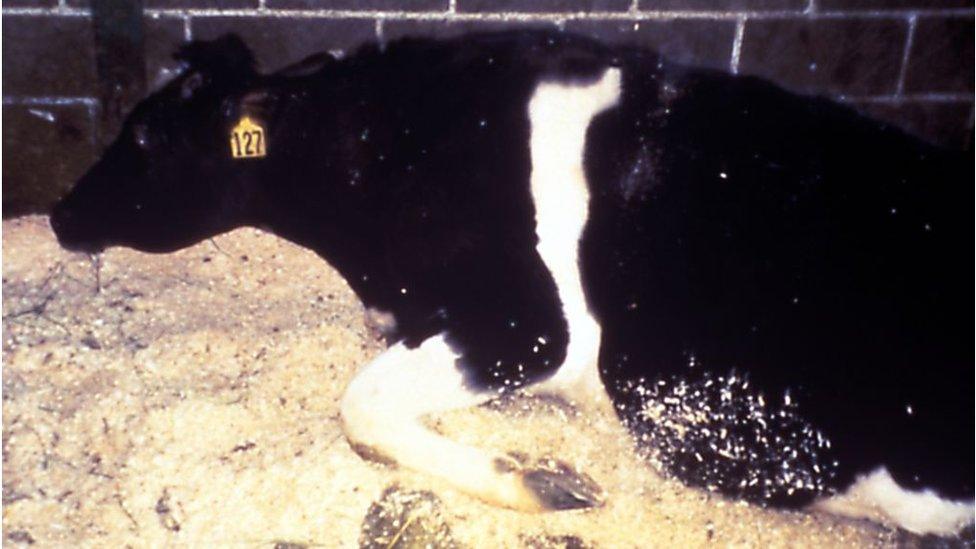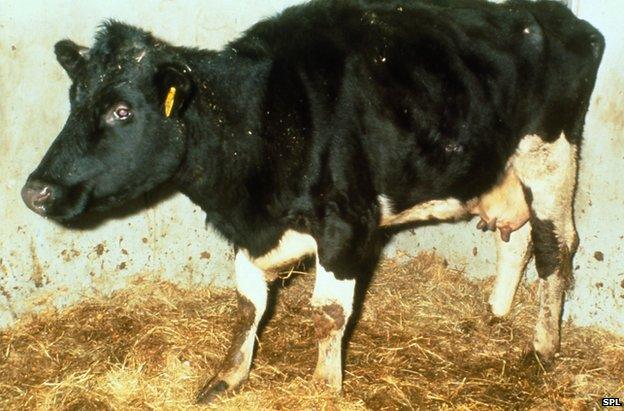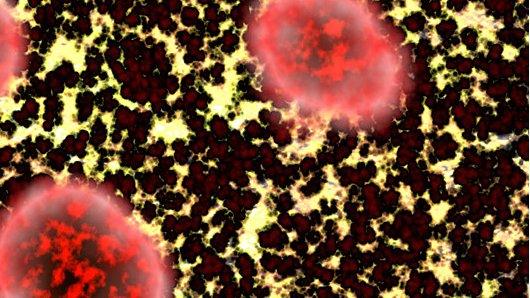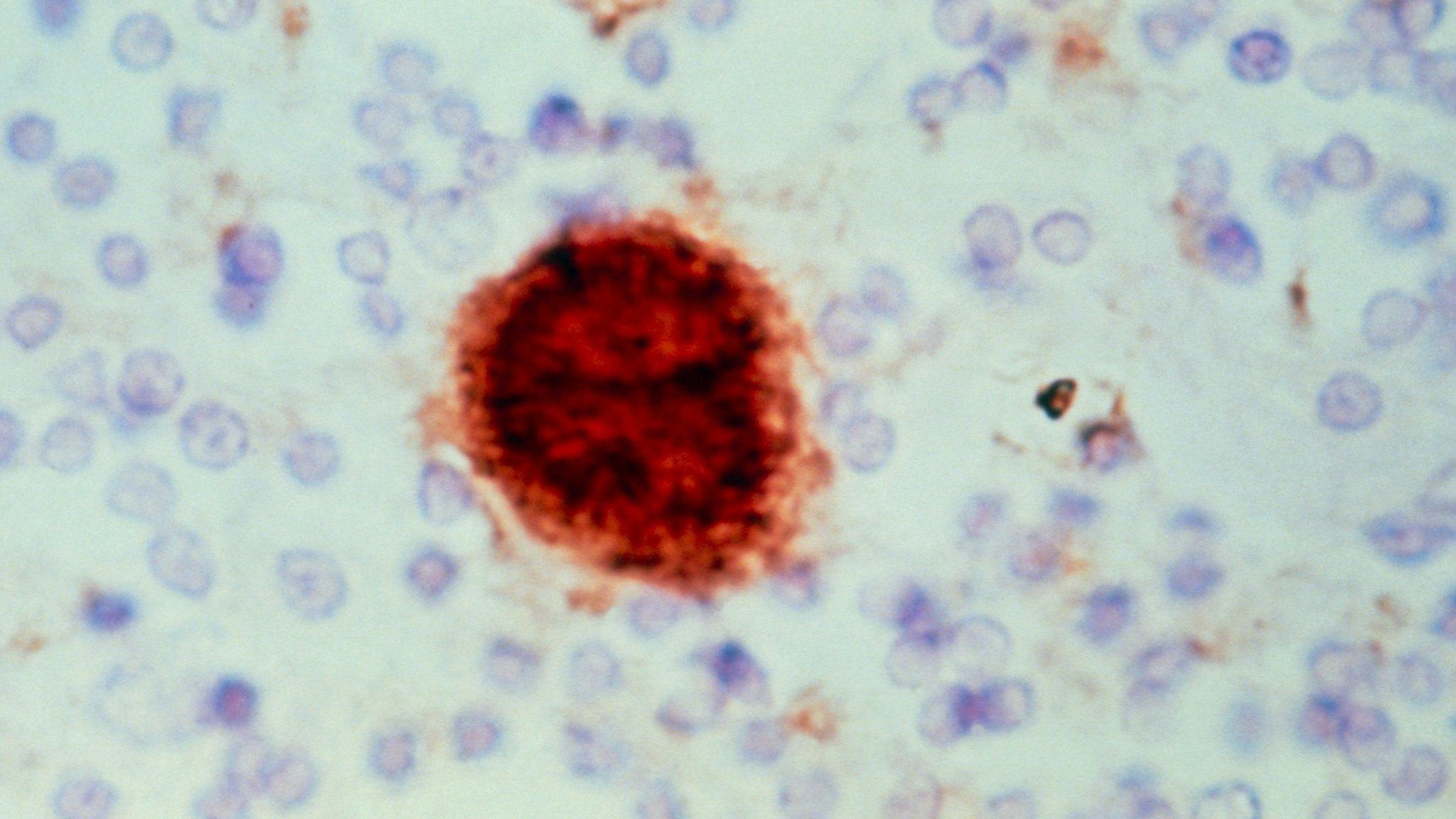Cases of vCJD still to emerge after mad cow disease scandal
- Published

Cow infected with BSE. Pictured in 2003
Scientists say more cases of Creutzfeldt-Jakob disease (vCJD) are still to emerge more than three decades after the "mad cow disease" scandal.
Richard Knight, a senior neurologist based in Edinburgh, said there were still people "silently infected".
Since 1996, 177 people have died from vCJD, while over four million cows were destroyed to prevent the spread of Bovine Spongiform Encephalopathy (BSE).
The issue is explored in a new BBC documentary on the food scandal.
It details how in 1985 the first case of BSE was detected at a farm in Wiltshire.
BSE was linked to the practice of feeding cattle an artificial protein supplement that was made from the remains of other animals in an attempt to speed up their growth.
By 1989 cases of BSE had rocketed resulting in 4.4 million cattle being slaughtered.
The documentary shows how the Conservative government at the time failed to stop cattle infected with BSE getting into the human food chain - and failed to alert the public to the possible dangers posed by the disease.
Annie McVey
In 1996 10 people were known to have contracted a human form of the disease - vCJD.
VCJD progressively attacks the brain, but can remain dormant for decades - it is untreatable and incurable despite decades of research.
There is also no test to determine whether a person carries the disease.
'Infected food stuff'
In 2013 researchers reported that one in 2,000 people in the UK were carriers of vCJD, linked to eating contaminated beef.
And a report by a committee of MPs in 2014 said tens of thousands of people could be "silent" carriers of the prions that cause the disease - blood transfusions were noted as a key source of transmission.

Contaminated beef from cows infected with bovine spongiform encephalopathy was the source of human vCJD
Prof Knight said: "One of the things that is uncertain is how many people in the UK are silently infected.
"Every prediction that we have suggests that there are going to be further cases."
However, Colin Smith, professor of neuropathology at the University of Edinburgh, said there was no need for "great alarm" and that the number of outstanding cases was likely to be relatively small.
He told BBC radio's Good Morning Scotland programme that the incubation period for vCJD could be many decades.
He said: "It's important to emphasise we're not suggesting that people are being infected currently.
"This is exposure to infected food stuff in the late 1980s, early 1990s. And now 30-odd years down the line, maybe 40, 50 years down the line, patients may start to present with symptoms of the disease."
Food chain
Prof Smith said the symptoms included psychological issues such as depression and hallucinations combined with neurological effects including unsteadiness and uncontrollable movement.
He added: "We have ongoing surveillance to try and identify people who might present with vCJD in the years to come and our predictions are - and I must emphasise - it is likely to be a relatively small number of people".
The first case of BSE in Scotland in a decade was confirmed last year after a cow died at a farm in Huntly.
However, Prof Smith said strict controls meant infected cattle products could no longer enter the food chain.
The BSE scandal is estimated to have cost the NHS more than £1bn and almost destroyed the British beef industry.
Mad Cow Disease: The Great British Beef Scandal airs later on BBC2 at 21:00.
- Published15 October 2013

- Published24 July 2014
